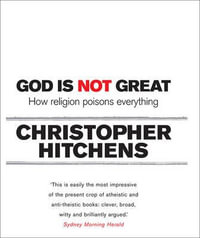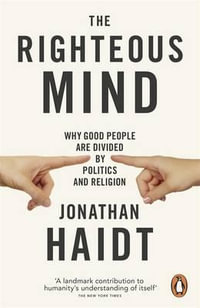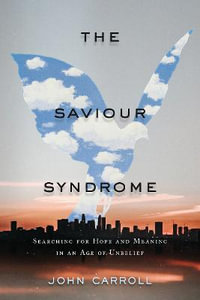Lavinia Stan and Lucian Turcescu examine the relationship between religion and politics in ten former communist Eastern European countries. Contrary to widespread theories of increasing secularization, Stan and Turcescu argue that in most of these countries, the populations have shown themselves to remain religious even as they embrace modernization and democratization.
Church-state relations in the new EU member states can be seen in political representation for church leaders, governmental subsidies, registration of religions by the state, and religious instruction in public schools. Stan and Turcescu outline three major models: the Czech church-state separation model, in which religion is private and the government secular; the pluralist model of Hungary, Bulgaria and Latvia, which views society as a group of complementary but autonomous spheres - for example, education, the family, and religion - each of which is worthy of recognition and support from the state; and the dominant religion model that exists in Poland, Romania, Estonia, and Lithuania, in which the government maintains informal ties to the religious majority.
Church, State, and Democracy in Expanding Europe offers critical tools for understanding church-state relations in an increasingly modern and democratic Eastern Europe.
Industry Reviews
"The book is well researched, and the authors appeal to a variety of sources and to a multitude of methods of both data analysis and interpretation. They also give voice to both state and religious actors Lavinia Stan's and Lucian Turcescu's book represents an important contribution to the documentation of the evolution of the relations between church
and state in Central and Eastern Europe after the downfall of the communist regimes. Stan
and Turcescu both offer a valuable working tool and provide scope for future research on
post-communist countries."--Religion and Society in Central and Eastern Europe
"This volume represents a valuable contribution to the existing literature, both because of the wealth of information provided and because of the comprehensiveness and novelty of the comparative approach by Stan and Turcescu [C]oncise and clear. The methodical structuring of each chapter around the same analytical axis allows the reader to easily identify both the similarities and the variations between these countries, on the basis of their historical legacies
and postcommunist political designs [T]his work will whet the appetite for further inquiries on the numerous nuances, similarities and differences which exist between the European states, both Western
and Eastern. This book will be a useful resource for researchers in the fields of democracy studies, comparative politics, religious studies and social sciences in general, but it is good reading for policymakers as well as for the general public." Religion, State and Society
"With Lavinia Stan and Lucia Turcescu we have a schematic but also analytic survey of Church-State relations in the new post-Communist member countries of the European Union It is through their systematic presentation of the similarities and differences between these new members of the EU that the authors make their original and important contribution to a better understanding of the interplay of Church and State in each of them since 1989."--Journal of
Ecclesiastical History
"The topic of Lavinia Stan and Lucian Turcescu's book is a timely and important one...In examining the transforming relationship between church and state, or better, between old and new churches and the state...the study offers a unique window into the EU's very soul...Stan and Turcescu are to be commended for making available, in a highly readable work, the contents of this critical debate inside the EU." --Europe-Asia Studies
"The EU's uncertainty about the place of Christianity in its vision of a post-national Europe makes the appearance of this book timely and necessary. An informative profile of church-state relations in ten post-communist EU states is provided, the editors ensuring the level of analysis and quality of presentation is uniformly high. The country-specific and theme-orientated approach is bound to add greatly to the understanding of religion and politics in a part
of Europe still deliberating about how far it should go down the road of European integration. The evidence presented in these factual and interpretative essays suggest that the grounds exist for a
clash between defenders of clerical power and traditional Christian values and an increasingly post-Christian European political order; whether or not this scenario occurs, Stan and Turcescu's volume is likely to be an indispensable reference source."---Tom Gallagher, author of Romania and the European Union
"This carefully researched, elegantly written volume surveys the relationships between church and state in the European Union's newest members, tracing their path from the communist era to today. Anyone interested in understanding the state of religion in Central Europe will find this book invaluable."---Sabrina Ramet, author of Nihil Obstat: Religion, Politics and Social Change in East-Central Europe and Russia
"Lavinia Stan and Lucian Turcescu present us with the most comprehensive investigation so far of church-state relations in the new members of the European Union in Central and Eastern Europe. Penned by two leading experts, the book's guiding thread allows for a thorough comparison of ten national cases while providing us with penetrating insights on democracy in a part of Europe where churches and religious organizations have defied the odds set against them by
Communist officials."---Barbara Thériault, author of "Conservative Revolutionaries" : Protestant and Catholic Churches in Germany after Radical Political Change in the 1990s
"In this original and comprehensive work, Stan and Turcescu outline the diverse church-state relationships in the ten postcommunist EU member states...The book is well written with thorough references, and effectively covers its wide range of countries."--CHOICE
"Careful readers of Church, State, and Democracy in Expanding Europe will learn a tremendous amount about individual churches and their roles in individual postcommunist polities."--Slavic Review
























